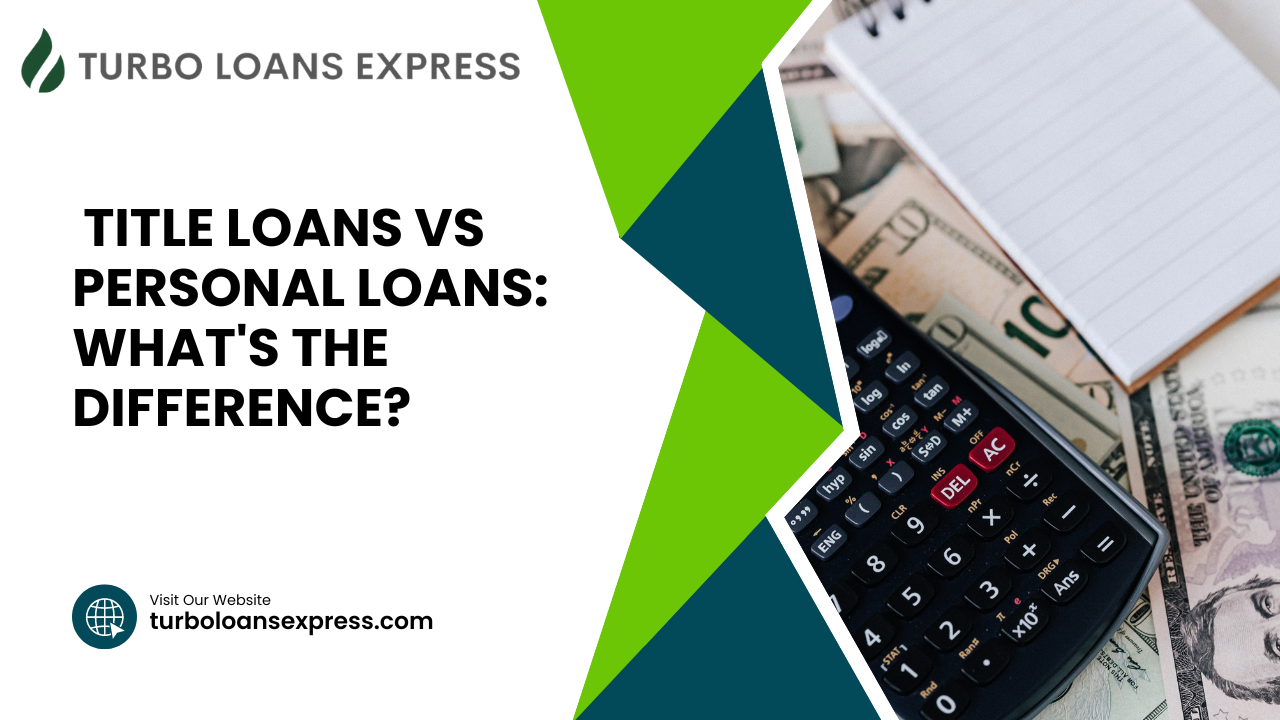Introduction
In the world of lending, title loans and personal loans are two options that consumers often consider. Both can provide access to funds when you need them, but they come with significant differences in terms of their requirements, costs, repayment terms, and potential risks. This article aims to provide a comprehensive comparison of title loans and personal loans, helping you understand their differences and make informed borrowing decisions. Remember, this article is for informational purposes only and does not constitute legal advice. Always consult with a financial advisor or attorney for advice tailored to your specific circumstances.
Title loans and personal loans are two types of credit that can help you in a financial pinch. However, they differ significantly in terms of their requirements, interest rates, repayment terms, and potential risks. Understanding these differences is crucial when considering which loan type is most suitable for your needs.
Why is Understanding These Types of Loans Important?
Understanding the differences between title loans and personal loans can help you make an informed decision about which type of loan is most suitable for your needs. It can also help you avoid loans with high interest rates or unfavorable terms, reducing your risk of falling into a debt trap.
What Are Title Loans & How Do They Work?
Title loans are a type of secured loan where your vehicle title is used as collateral. The lender can repossess your vehicle if you fail to repay the loan.
To get a title loan, you must own a vehicle outright. The lender will assess its value and offer a loan based on a percentage of that value. You risk losing your vehicle if you can’t repay the loan.
- PROS: Title loans can provide quick cash without a credit check, making them appealing in a financial emergency.
- CONS: They come with high interest rates and the risk of losing your vehicle.
What Are Personal Loans & How Do They Work?
Personal loans are loans that can be used for a variety of purposes. They can be secured or unsecured, and they typically have lower interest rates than title loans.
To get a personal loan, you typically need to have a good credit score. The lender will assess your creditworthiness and offer a loan with a fixed interest rate and repayment term.
- PROS: Personal loans offer lower interest rates and longer repayment terms than title loans.
- CONS: They require a credit check, and those with poor credit may not qualify or may have to pay higher interest rates.
How to Compare Title Loans and Personal Loans?
1) Loan Amounts
- Title Loans: The loan amount is based on the value of your vehicle, often up to 50% of its value.
- Personal Loans: The loan amount can vary widely, from a few hundred to several thousand dollars, based on your creditworthiness.
2) Interest Rates and Fees
- Title Loans: These loans often have high interest rates, sometimes exceeding 100% APR.
- Personal Loans: These loans typically have lower interest rates, often between 6% and 36% APR.
3) Approval Process
- Title Loans: Approval is based on the value of your vehicle. No credit check is usually required.
- Personal Loans: Approval is based on your credit score, income, and other factors. A credit check is usually required.
4) Repayment Terms
- Title Loans: These loans are usually due in 30 days.
- Personal Loans: These loans have longer repayment terms, often ranging from one to seven years.
5) Risks Involved
- Title Loans: The main risk is losing your vehicle if you can’t repay the loan.
- Personal Loans: The main risk is damaging your credit score if you can’t repay the loan.
Which Loan is Right for You?
Before choosing a loan type, consider your financial need, your ability to repay the loan, the loan’s interest rate and terms, and the potential risks involved.
In What Situations Might a Title Loan be More Suitable?
A title loan might be more suitable if you need quick cash, have a vehicle you can use as collateral, and are confident you can repay the loan within the agreed-upon term.
In What Situations Might a Personal Loan be More Suitable?
A personal loan might be more suitable if you need a larger loan amount, have a good credit score, and prefer a loan with a lower interest rate and longer repayment term.
Conclusion
Title loans and personal loans each have their own set of characteristics, benefits, and drawbacks. Understanding these differences can help you make informed borrowing decisions and avoid potential pitfalls. Remember, the best financial decisions are informed ones.
FAQs
1) Which loan type has the highest interest rate?
Title loans typically have higher interest rates than personal loans.
2) Which loan type requires a credit check?
Personal loans typically require a credit check, while title loans usually do not.
3) Can I lose my vehicle with a title loan?
Yes, if you default on a title loan, the lender has the right to repossess and sell your vehicle.
Remember, always read and understand the loan agreement before signing, ask questions, and consider seeking professional advice if needed.

